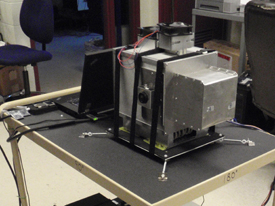Study Reveals Arab American Views on Organ Donation
*New University of Michigan research shows higher education, religion, income levels influence Arab American support of organ donation*
ANN ARBOR, Mich. – U.S. organ procurement organizations looking to increase donation rates among Arab Americans can turn to new University of Michigan Health System research for recruitment ideas.
U-M researchers identified various factors – from education and income levels to gender and religion – that may predict how members of this population view organ donation, says lead study author Aasim I. Padela, M.D., an emergency physician and a Robert Wood Johnson Foundation Clinical Scholar at the U-M Health System. (more…)

